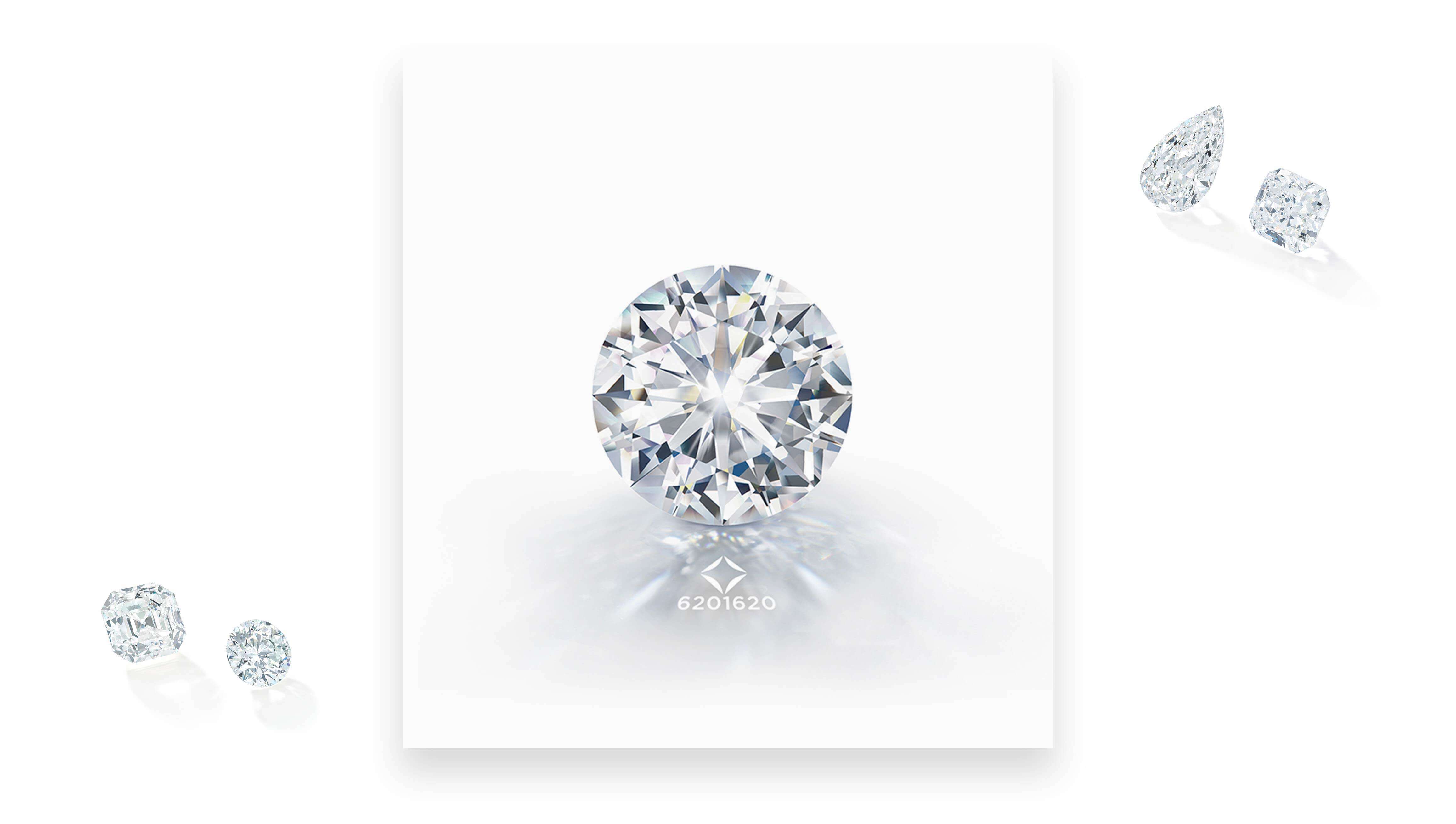The British royal coronation and crown jewels
The British coronation is a ceremony full of history and ritual, with pledges and promises from the sovereign to their people that are made to last a lifetime. Central to any coronation ceremony are the Crown Jewels. Made with skill and craftsmanship and full of history, each sacred item within the collection symbolises different aspects of the monarch's power, the promises that they make and the relationship between sovereign and their country. The Crown Jewels feature some of the world's most famous diamonds, which are the ultimate symbol of strength, power and commitment.
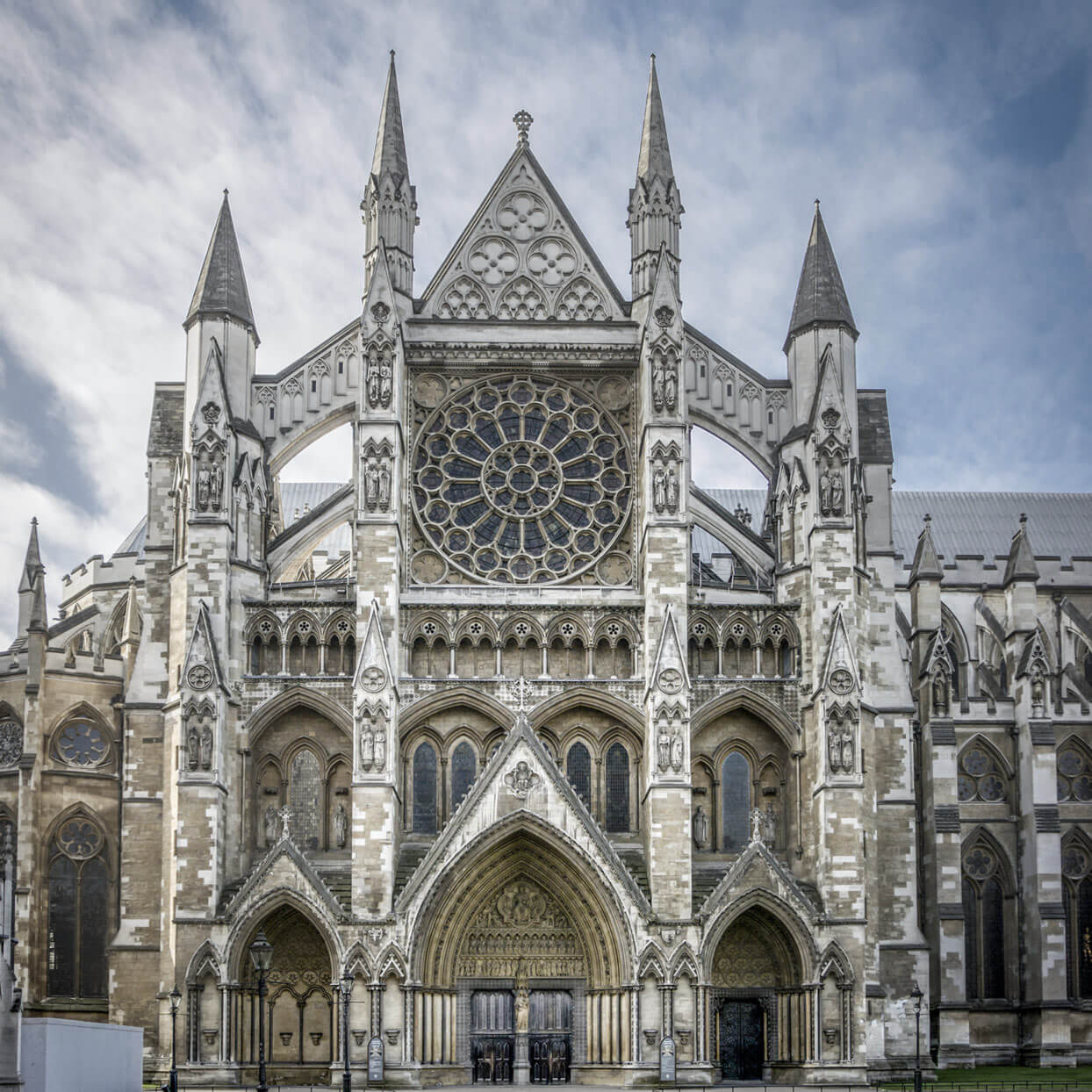
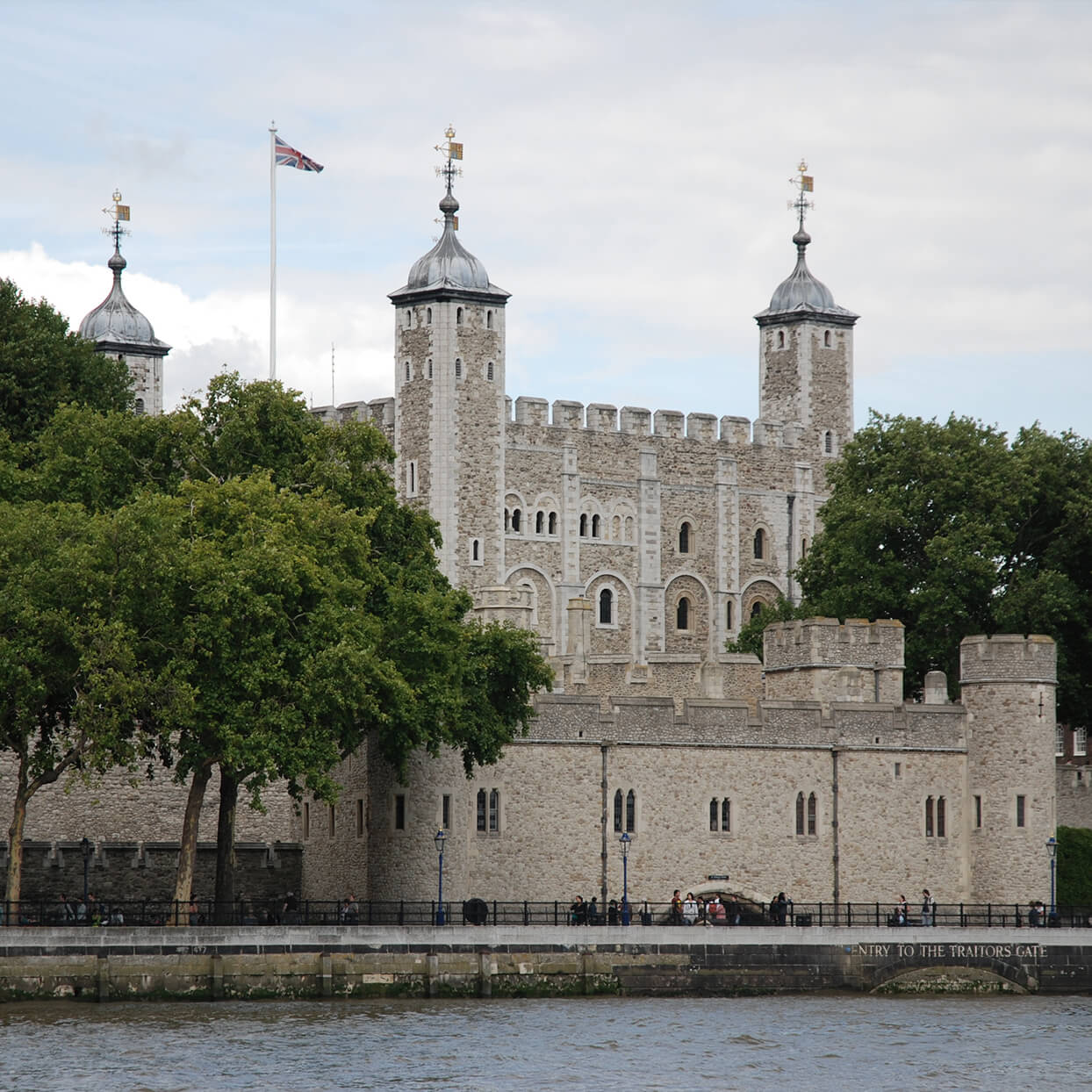
History of the British coronation
Over 1,000 years old, the first British coronation took place in the Anglo-Saxon period, following a medieval style ritual. This style of coronation is still used today, with Britain being the only country in Europe to still follow it.
In 1066 King Harold’s coronation was the first to take place at Westminster Abbey, London, this tradition has continued since and the Abbey has now seen 39 coronations take place.
The crown jewels
Kept securely in the Tower of London, the Crown Jewels have been added to over time, but at the core of the collection remains the set of ornaments made for King Charles II in 1660.
Here we delve into the stories of just some of the beautiful pieces that are part of the crown jewels.
Did you know?
Until 1815 you used to be able to pay a small donation to the jewel house keeper to handle the Crown Jewels. Unfortunately, this opportunity ended when the Imperial State Crown of King George I got bent out of shape by an eager visitor.
Orb
Made of gold, the orb features 365 diamonds and is set with pearls, rubies, sapphires, emeralds and one large amethyst. During the ceremony, it’s placed in the right hand of the monarch, before being placed on the altar. An expression of the monarch’s authority, the tradition of a monarch receiving the orb dates back to Roman times.

The Armills
These two 22-carat-gold engraved bracelets with rose clasps are placed on the sovereign's wrists during the ceremony to symbolise ‘sincerity and wisdom’.
Sovereign ring
Known by some as the wedding ring of England, this gold band contains an octagonal sapphire overlaid with square cut rubies and surrounded by diamonds. Placed on the fourth finger of the right hand of the sovereign by the Archbishop, the ring represents the sovereigns ‘marriage’ to the nation.
The Sovereign's Sceptre with Cross
Embodying power, during the ceremony the sceptre is held with a glove to remind the monarch to use their power wisely. The sceptre features the famous Cullinan I diamond, which is also known as the ‘Star of Africa’. This teardrop diamond is the largest cut diamond in the world, weighing over 530 carats.
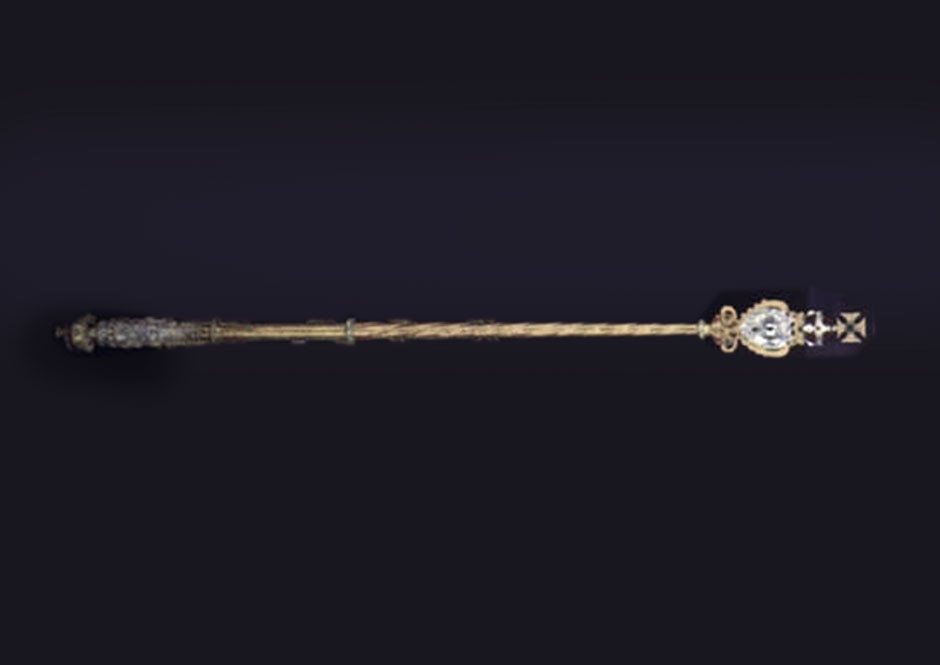
Jewelled Sword of Offering
Decorated with a thousand precious stones; diamonds, sapphires and rubies, the jewelled Sword of Offering is received with the injunction that it is to be used for the protection of good and the punishment of evil.
St Edward’s crown
Used only at the moment of the crowning itself, St Edward’s crown is named in recognition of the crown worn by medieval king, Edward the Confessor, who was later made a saint. Weighing almost 5lbs, the crown is set with 444 precious and semi-precious stones.
The Imperial State crown
Worn at the end of the coronation and during the procession, The Imperial State crown is the most elaborate and widely used crown, with only the Queen, the Archbishop of Canterbury and the Crown Jeweller permitted to touch the crown.
The crown contains 2,868 diamonds, including the famous cushion cut, 317.4 carat Cullinan II diamond, also known as the Second Star of Africa, the second largest stone cut from the Cullinan Diamond. It also features a small blue sapphire at the very top, in the middle, that is said to have come from the medieval King Edward the Confessor’s ring.
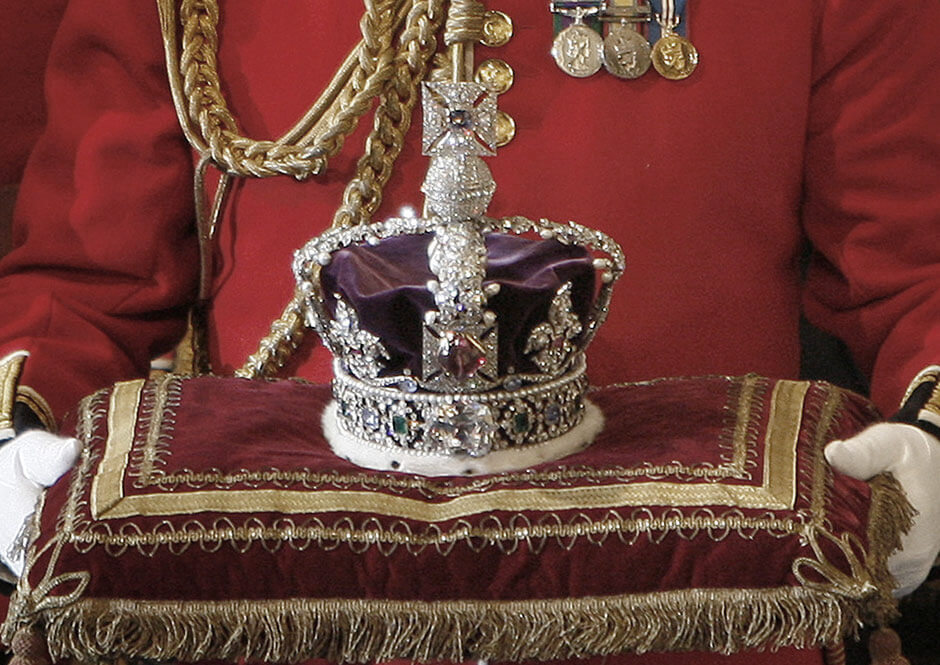
The Queen
Consorts crown
Whenever a married king is crowned, his wife is crowned ‘Queen Consort’. The Queen Consorts crown historically featured the Koh-i-Noor, one of the most famous diamonds in the world. It now sits in the crown of Queen Elizabeth, the Queen Mother. Cushion shaped, and 105.6 carats, it’s said that bad luck falls to any man who wears it, so the crown firmly belongs to the Queen Consort.
The Coronation of Queen Elizabeth II
Taking place on an unseasonably cold and wet English summer day on the 2nd June 1953, after 16 months of planning, Queen Elizabeth II was crowned, aged 27.
The ceremony itself had over 8,000 attendees including British nobility and international heads of state representing 129 different nations and territories. It also made history by being the first coronation to be televised and watched by 27 million Britons.
The Queen’s dress was embroidered with floral emblems representing the countries of the British Commonwealth, with this symbolism also evident in her bouquet of flowers.
Similar to a traditional British wedding, the Queen had six maids of honour, all wearing hand-embroidered dresses featuring pearls and gold and silver thread.
After the ceremony the Queen rode in a gold state coach, travelling five miles around London, in a five-hour parade met by two million well-wishers. This procession is also part of a historical ritual that began in the 14th century.
A Promise of Forever
The British coronation for some is a ceremony that is a vital part of British history. It is a ritual that is over 1,200 years old, and just like De Beer Forevermark's promise that A Diamond Is Forever, the sovereign too makes binding promises of Forever to their people.
Image Credits
Westminster Abbey and The Tower of London: Adobe Stock
All other stock images: Getty Images
A Diamond Is Forever
Follow their journey through billions of years in the making, and discover fascinating myths, legends and love stories all sparked by diamonds.
Learn about natural diamonds
A Diamond Is Forever
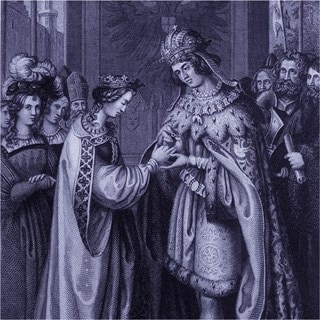
Diamond as a symbol of Love
A Diamond Is ForeverSince it was discovered diamonds can resist both fire and steel, they have possessed otherworldly powers in the eyes of people all over the world.
Read More
10 Diamond Facts
A Diamond Is ForeverNearly as old as the earth itself, and with no two diamonds ever being the same, there are many fascinating facts about the creation, discovery, and history of a diamond.
Read More
Frances Gerety
A Diamond Is ForeverGerety was the start of change. She helped ignite the evolution of more women working and being respected in the workplace.
Read More
Famous diamonds
A Diamond Is ForeverFrom the biggest diamond ever discovered, to the oldest diamond known to man, such a precious gem is bound to have fascinating tales to be told.
Read More
The power of ‘A Diamond Is Forever’
A Diamond Is ForeverRecently celebrating its 70th anniversary, the iconic ‘A Diamond Is Forever’ line was a moment of inspiration...
Read More
